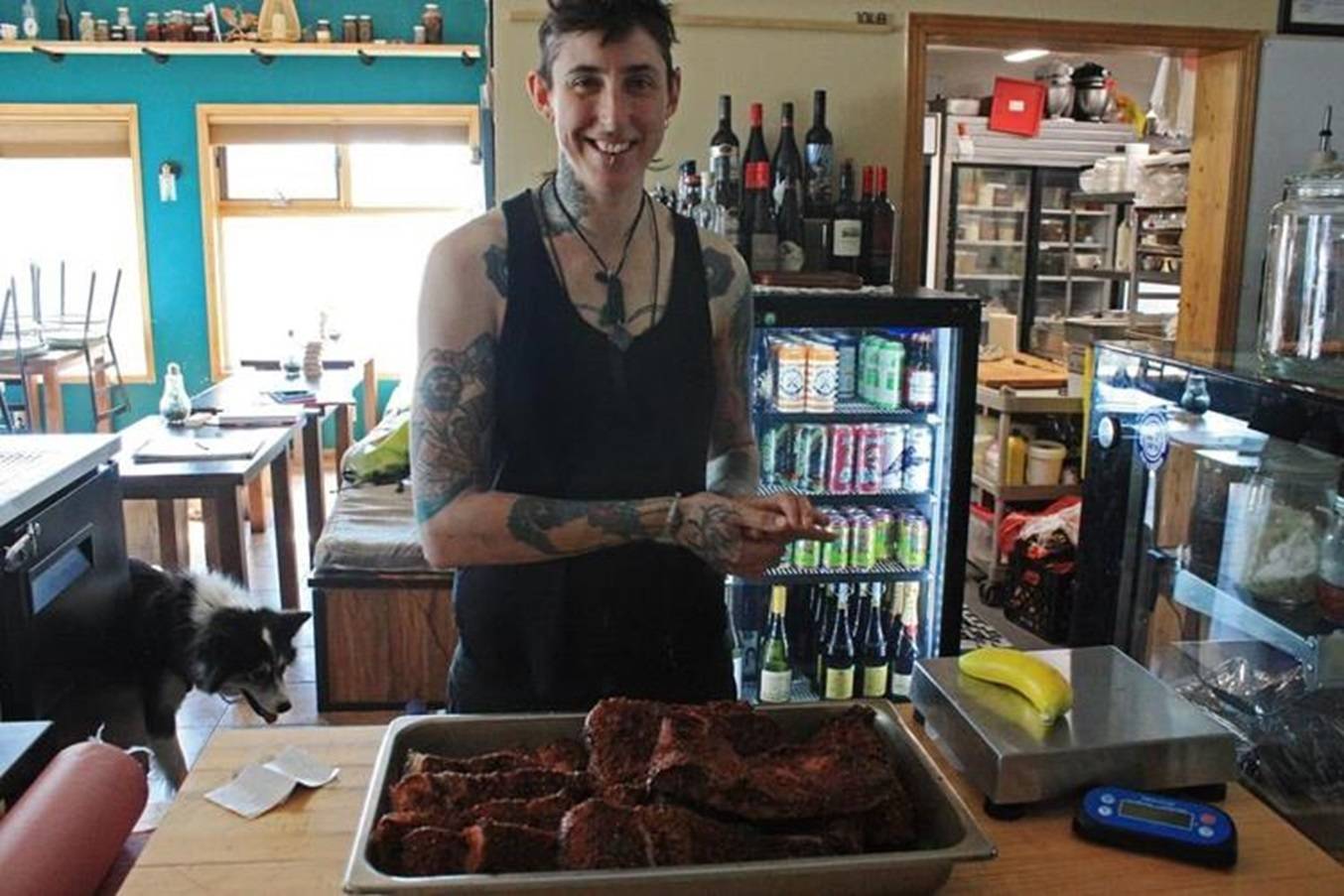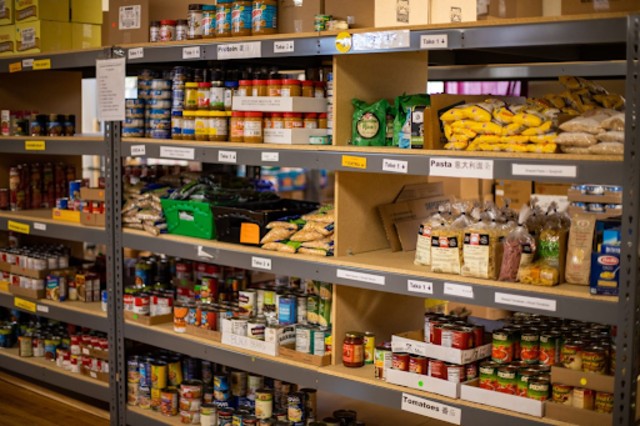
Niki Mackenzie, chef and owner of Fishy People. Yellowknife, April 24, 2023 (The Canadian Press/ Emily Blake)
In the northern regions of Canada, a wave of creativity is sweeping through local food businesses, as they ingeniously incorporate native ingredients into their offerings. In Yellowknife, Niki Mackenzie, chef and owner of Fishy People, showcases a commitment to utilizing the abundant resources of Great Slave Lake and nearby areas, crafting unique items like fish sausage, trout pastrami, and even "northern calamari" made from white fish stomachs. Mackenzie's inventive approach extends to using birch syrup and fennel seeds for bacon, spruce tips for capers, and rosehip for ketchup.
The move towards harnessing local produce is not limited to Mackenzie alone. France Benoit of Le Refuge Farm in Yellowknife is contributing to the cause by cultivating a variety of vegetables and herbs for use in soups and sauces. She emphasizes the environmental responsibility of locally sourced produce, linking it to reduced greenhouse gas emissions and efforts to enhance food security and sovereignty. In a similar vein, Bush Order Provisions in Yellowknife, run by Marie Auger-Thomas and Kyle Thomas, operates as a market garden, bakery, and farm store, encouraging consumers to embrace local products and promoting sustainability through composting.
The significance of this movement extends beyond individual businesses, as it aims to address challenges associated with food security in the northern territories. Marie Auger-Thomas and Kyle Thomas at Bush Order Provisions emphasize the benefit of reducing reliance on trucked-in food to enhance the overall food system. Their efforts also extend to inspiring others, including students in the Tlicho community of Whati, to embark on food production initiatives like making their own bagels.
The 2021 agricultural census sheds light on the evolving landscape, revealing a modest presence of eight farms in the Northwest Territories. Yet, the natural bounty of plants, berries, and the ability to hunt animals like moose and bison supplement local food sources. Initiatives such as Arctic Harvest, founded by Mike Mitchell and Craig Scott, contribute to the cause by teaching the collection of birch sap for syrup production, aligning with the goal of enhancing food self-sufficiency.
The movement towards utilizing local resources also extends to other northern territories, such as Yukon and Nunavut. In Yukon, Landed Bakehouse in Whitehorse collaborates with local farms for wheat, barley, milk, eggs, and meat, showcasing a holistic approach to sourcing ingredients. In Nunavut, although there are no farms, Inuit communities engage in hunting and fishing, with local foods like muskox, seal, Arctic char, and whale skin and blubber available for purchase.
The endeavor to incorporate local ingredients into the culinary landscape is not limited to individual businesses but also extends to establishments like The Discovery in Iqaluit. Warren de Bruin, a food and beverage consultant for Nova Hotel Group, underscores the popularity of dishes featuring locally sourced items, such as Arctic char and caribou, at the Granite Room restaurant, particularly among the local community in Iqaluit. Overall, this movement reflects a growing awareness and commitment to sustainability, local sourcing, and the promotion of food security across the diverse landscapes of Northern Canada.















